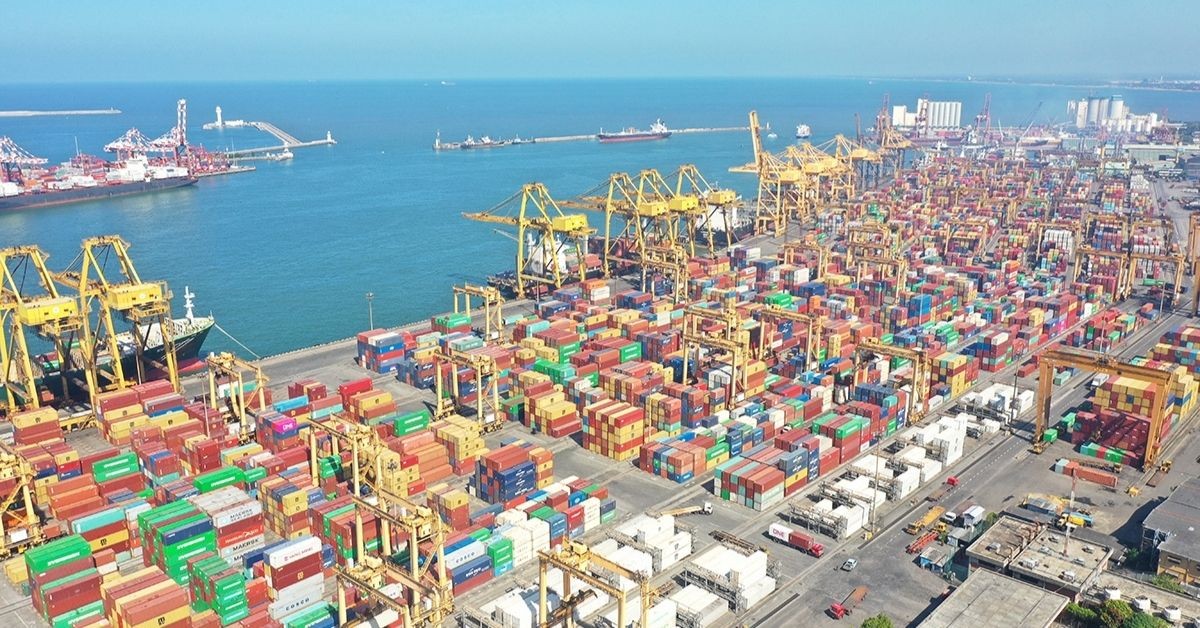Around 1000 essential commodity container congestion at Colombo Port for several weeks appears to be easing following their clearance making maximum use of manpower with minimum number of workers, the Sri Lanka Customs Chief said.
A heavy container backlog had been created at the port due to the detention of 550 sugar containers on an order issued by Imports and Exports Controller General Damayanthi Karunarathne in accordance with the circular on banning imports issued on June 22, 2021.
Sri Lanka Customs Director General, Major General (Retd.) G. Vijitha Ravipriya told the Business Times that the department is following rules and regulations as well as directives of relevant authorities when clearing containers.
The clearing of these sugar containers began this week on a directive issued by Imports and Exports Controller General with the consent of the Trade and Finance Ministries.
The backlog seems to be reducing rapidly at present, he said, adding that there was no delay in clearing containers of milk powder and pharmaceuticals brought into the island in recent shipments.
Sugar importers have agreed to a request made by Trade Minister Bandula Gunawardena to supply a major quantity of their imported sugar stocks to Lak Sathosa at a price of Rs.102 (CIF), a senior ministry official said.
This will enable the state entity to sell it to consumers at a concessional price keeping a small margin and on this basis a directive has been issued to clear the containers which were held under the custody of Customs, he added.
The importers have been allowed to sell the balance quantity to wholesale dealers at a reasonable price as there was no price control for sugar at the moment, he explained.
Co-Cabinet spokesman Keheliya Rambukwella told journalists at the weekly cabinet news briefing that there won’t be any shortage of sugar in the local market as traders possessed a buffer stock sufficient for three months.
Although the container detention issue was amicably settled between the Trade Ministry and importers, sugar prices have skyrocketed to Rs. 150 in the local market as there was no price control at present.
The Consumer Affairs Authority has issued at least six gazette notifications fixing the retail price at Rs. 85 and wholesale price at Rs. 80 last year following the reduction of tax to 25 cents from Rs.50 per kg. All these directives have been ignored by the trade.
The importers are now used to sell their stocks at a price of Rs. 122 per kg to wholesale dealers and they in turn sell it to retail traders at Rs.145 while the consumers buy it for Rs. 150 at present.
Source : Sunday Times







